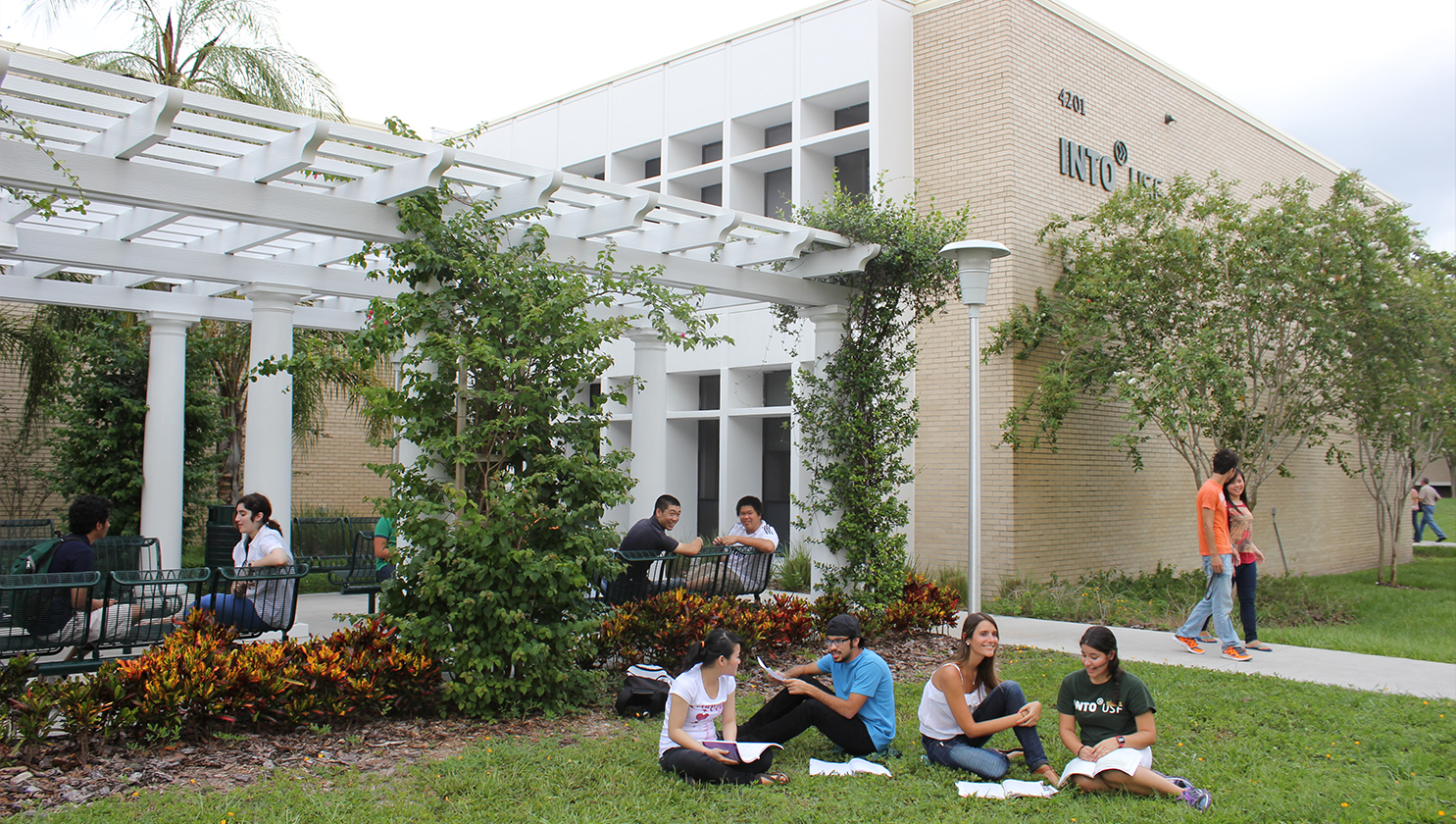OPINION: International students are being deceived by the INTO program

Many international students are inexperienced with the admission process at U.S. universities.
They put their trust in admission agencies that work together with different universities and INTO. These agencies help international students decide what university would be the best fit for them, and also lead them through the examination process, gathering documentation and other necessary steps in order to be admitted.
INTO USF describes itself as a pathway program designed to ease an international student’s transition to a new country, improve English skills and introduce courses required for their intended major, according to the USF website.
Agencies push students to apply through the INTO USF program, without properly explaining their alternative options of getting in. This was the case for senior Russian international student Polina Pustovarova.
Pustovarova applied to USF in 2018 through an admission agency and was admitted to the INTO USF program. She said she was never told about her option to apply as a regular international student.
The program is beneficial for international students that didn’t meet the application requirements or deadlines because it still allows them to be admitted to USF. It is also a good choice for students wanting to improve their English skills before starting university courses.
However, many students in INTO USF could have been admitted to USF as a regular international student if they were properly advised by their admission agencies. For them, the program felt useless and overpriced.
Some students applying through the INTO USF program are being deceived by agencies and are being overcharged.
The INTO USF program costs $15,000 per semester, as compared to $9,000 for a regular full-time international undergraduate student, according to the USF website.
A second-year international student from Russia, Alexandra Romanova, claims her agent didn’t disclose there was an alternative way to apply to USF.
Her agent told her that in order to study at USF she only had to take an English exam that successfully put her in the INTO USF program, as opposed to starting her classes right away.
“It felt like it was such a waste of time for me sitting in basic English language courses,” Romanova said. “Especially considering the fact that I took Composition 1 and Composition 2 right after, where I was basically taught the same exact things.”
The INTO USF program costs more than the standard first year of core classes for freshmen students, but not all classes taken through INTO count toward a student’s major, putting them behind other students for graduation.
Daniel Drozdoz, senior international student from Kazakhstan, had a similar situation happen to him. He came into USF with good knowledge of English and realized the program wasn’t necessary for him. When he tried to leave the program, he said he was told by INTO USF it was too late for him to transfer.
“My agency told me that the only way I should be applying is through INTO,” Drozdov said. “I was not told that I could get in by just applying as an international student.”
He believes he ended up paying a lot more money than a regular international student, even though the program didn’t benefit him in any way.
INTO didn’t respond to The Oracle for comment by the time publication.
Although INTO USF may be a good choice for international students applying to USF who don’t meet the regular admission criteria, it is a waste of time and money for others. Some students interviewed said they were paying up to $50,000 a year with INTO USF’s tuition costs and living plan expenses.
Admission agencies should not be deceiving students into applying to a costly program that was not necessary for them. International students should be informed of their alternative options.
Moving to a completely new country already puts students in a vulnerable state. Being taken advantage of by agencies during your first year of studies should not be a part of the American college experience.







